Inside the exclusive world of members-only clubs
SOME private clubs cost $20,000 to join. Some cost $5. But what makes them all the same is the mystery of what goes on behind closed doors. Take a peek.
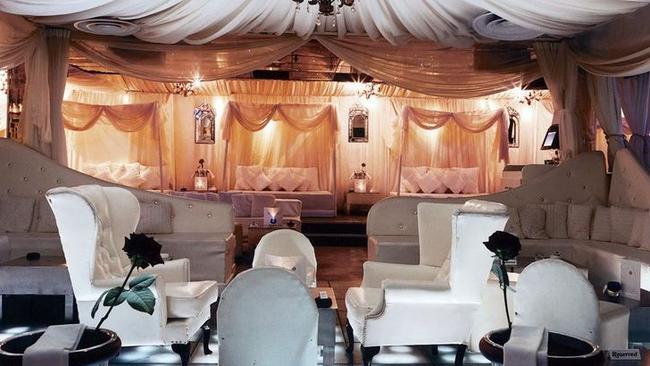
DON’T even think about inviting Beatrix Reinhardt to join a club.
The New York — based, East German — raised photographer doesn’t want to be a part of anything labelled “members only,” but it hasn’t stopped her from photographing society’s exclusive interior spaces — what she calls an addiction — for more than 10 years.
It all began in 2003, while she was an artist in residency in Canberra, Australia. “After work, my colleagues wanted to grab a beer and a lot of them insisted on going to a club, essentially because the beer was cheaper,” she said. Fascinated by the amount of members-only clubs she saw in Australia, Reinhardt began photographing the interior spaces beginning the ongoing series “Members Only.” Since then, she has added images from around the world, including the United States, India, China, Spain, and South Africa.
“Most places I visit, the first thing I do is search in the yellow pages since usually private clubs are listed there,” she said.

She then makes phone calls or drops by for a visit explaining her interest in photographing the spaces. Sometimes she gets inside, other times it might take a member helping her gain access or, she said, “I go over and over and they get so sick of me they say just go in and photograph.”
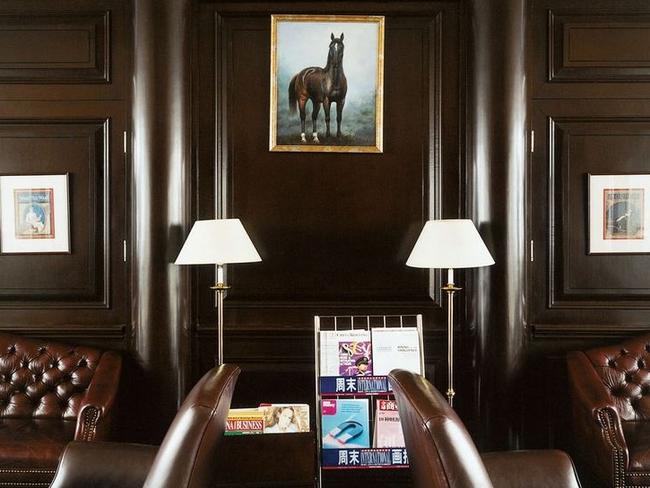
Reinhardt, who shoots her photos on film, likes “to figure it out and then make the picture,” instead of spending too much time in any of the spaces. She worries that if she does, she’ll end up overshooting and taking an endless number of photos.

Instead of including people in the photographs, she prefers to find the most compelling part of the club. Reinhardt lists the name with the image, and it’s up to the viewer to figure out what is or isn’t happening in the space presented.
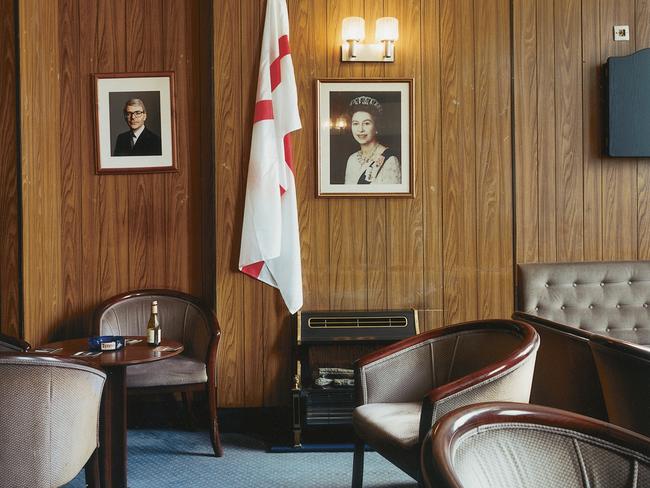
“There is no difference between a club where the fee is $200,000 a year or 20 cents,” she said. “A lot of people who set up the clubs think they are really special and it should only be accessible to their members.”
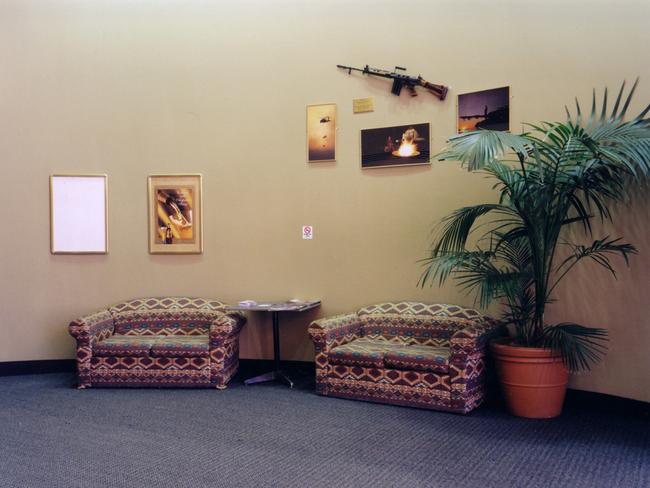
Entering dozens of private clubs over the years, Reinhardt mentioned that although many clubs now admit both men and women, often women are still not allowed in libraries or billiard rooms. She feels it stems from a desire to be part of a chosen group.

“People around the world want to feel special. It’s a strange thing.”
“They are public spaces to a degree,” she said about the clubs. “The additional label put on them says that they are private so special people — whoever is considered special — has access to similar people and these tribes don’t want intruders … if the intruders come, they tend not to be open to it.”

For Reinhardt, being raised in East Germany heavily influenced her interest and aversion to organised clubs.
“You came out of the womb belonging to some kind of organisation,” she said. “It’s the same thing for me as organised religion … some people find it soothing but for me, opposing emotions come up.”
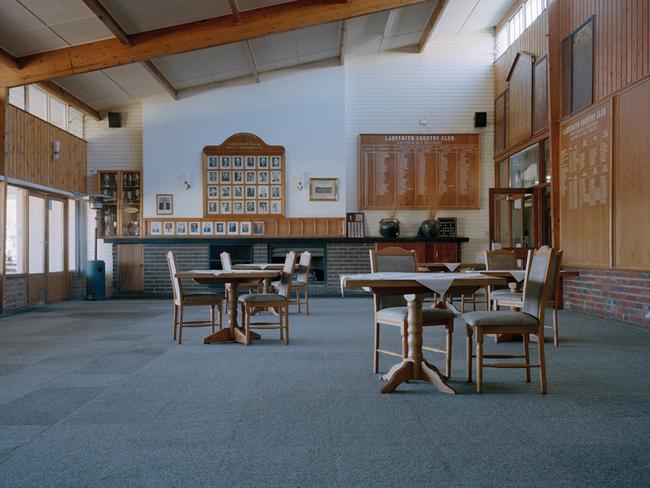
“Photography for me is that I have the privilege to stick my nose into things that do not concern me,” she said. “I can stand in front of a person and say ‘Hi, I want to talk to you.’ I like very much the opportunity to engage with communities, people and cultures in a way that otherwise might be much harder. I like to figure out how people think in one way or another.”
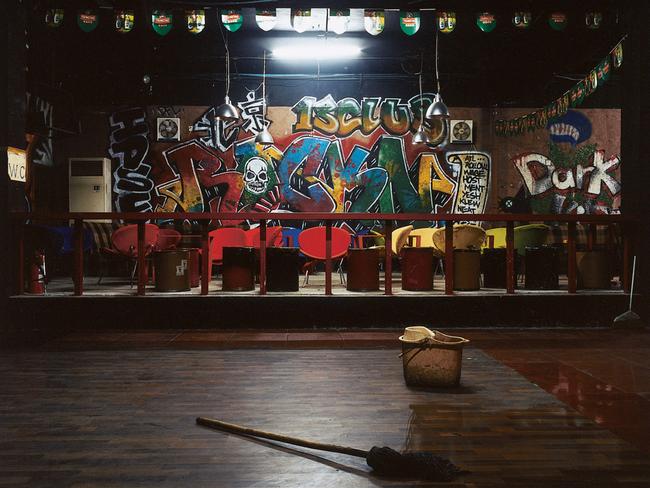

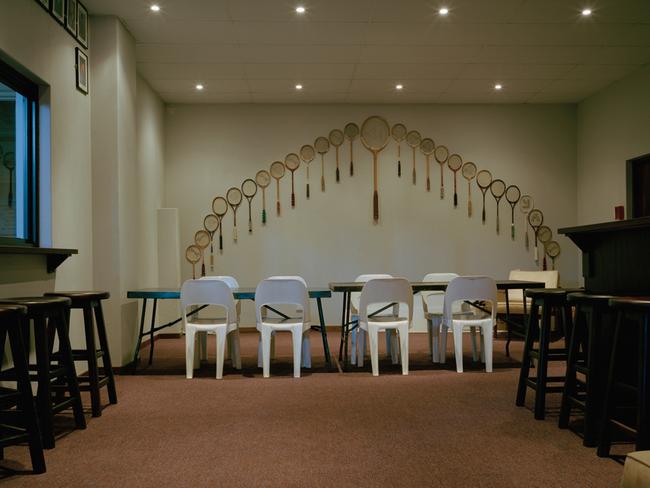
For more of Beatrix Reinhardt’s work, check out her website here.
This article was written by David Rosenberg from Slate and was legally licensed through the NewsCred publisher network.



